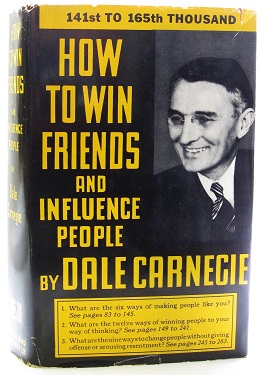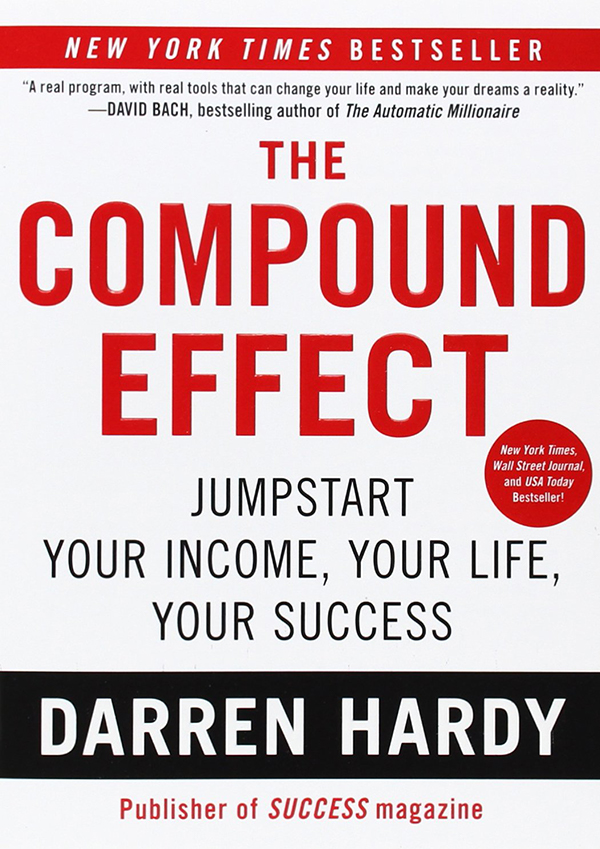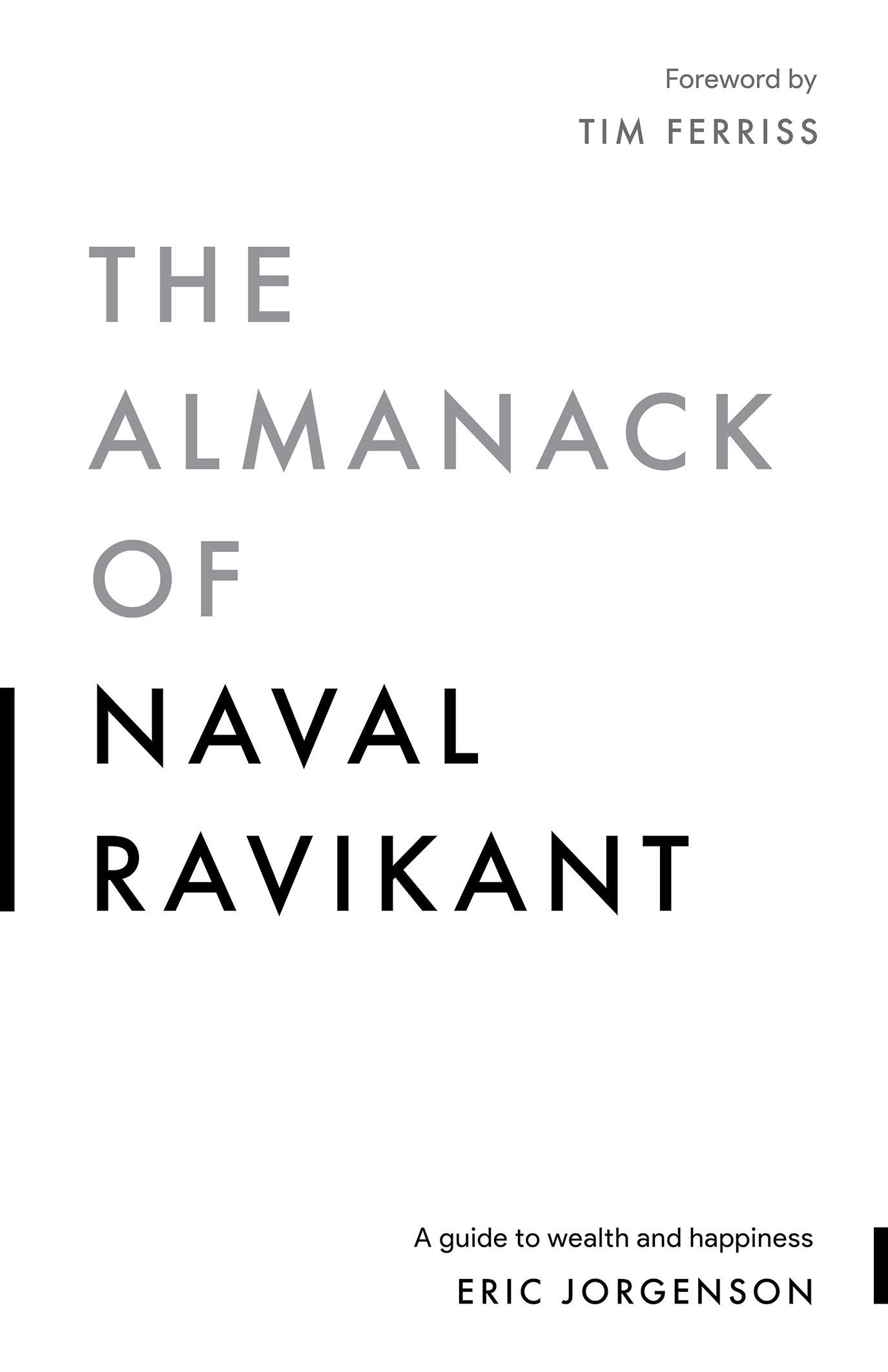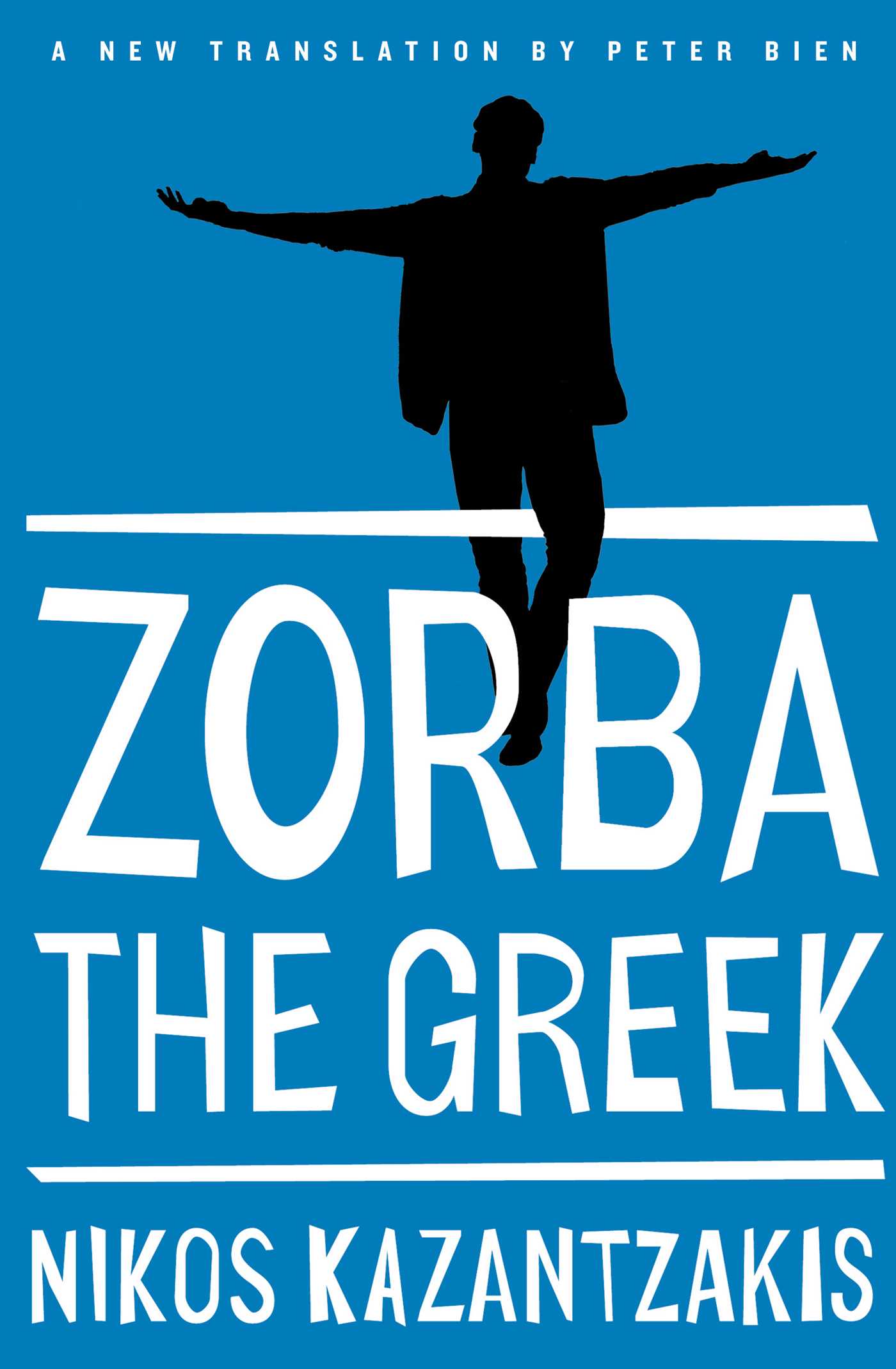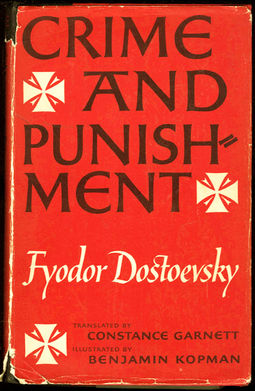The Best Philosophy Books
All topics are curated by you, the community. Free from editorial bias, 100% independent. Upvote your favorite items, propose missing ones and shape the ranking of this topic.
Embark on a journey of intellectual discovery with a selection of the best philosophy books that have shaped and challenged human understanding throughout history.
These philosophy books encompass a rich tapestry of ideas, inviting readers to engage with profound concepts that have shaped the intellectual landscape. Whether delving into ethics, metaphysics, or political theory, these works offer a timeless exploration of the fundamental questions that define our existence.
This page may contain affiliate links, so we may earn a small commission when you make a purchase through links at no additional cost to you.
As Amazon Associates, we earn from qualifying purchases.
-
"Atomic Habits" is a book written by James Clear, published in 2018. The book explores the science and psychology of habit formation and provides practical strategies for creating positive and lasting changes in one's life. It focuses on the idea that small, incremental changes, or "atomic habits", can lead to significant improvements over time.
The term "atomic" in this context refers to the idea that habits are like the building blocks of behavior, and by making small, consistent changes, individuals can build a strong foundation for positive habits. The book emphasizes the power of compounding effects and the role of environment, behavior cues, rewards, and mindset in shaping habits.
"Atomic Habits" offers a framework for understanding how habits work, how they can be effectively changed, and how individuals can align their actions with their desired outcomes. The book draws on scientific research, real-life examples, and practical advice to help readers identify and modify their habits to achieve personal and professional success.
It's worth noting that the book has gained widespread popularity for its actionable insights and practical approach to habit change. It's considered a valuable resource for anyone interested in personal development, behavior change, and self-improvement.
-
"The Power of Positive Thinking" is a self-help book written by Dr. Norman Vincent Peale, first published in 1952. The book focuses on the principles of optimism, faith, and positive thinking as tools for improving one's life, achieving success, and overcoming challenges.
Peale offers practical strategies, including affirmations and visualization, to cultivate positivity and resilience. Emphasizing the importance of faith and proactive mindset, the book encourages readers to harness the power of positive thinking to overcome challenges and achieve their goals. Through anecdotes and practical advice, Peale inspires readers to adopt a positive outlook and transform their lives for the better.
from wikipedia.orgRetreiving from wikipedia...
-
The Subtle Art of Not Giving a F*ck: A Counterintuitive Approach to Living a Good Life" is a self-help book written by Mark Manson. The book was published in 2016 and gained widespread attention for its candid and no-nonsense approach to personal development and happiness.
In the book, Mark Manson challenges conventional self-help advice and encourages readers to embrace the realities of life, including its struggles and limitations. He emphasizes the importance of focusing on what truly matters and letting go of the need for constant positivity and validation. The central message is that by accepting life's challenges and acknowledging our limitations, we can cultivate a more authentic and meaningful sense of well-being.
Manson introduces concepts such as choosing meaningful values, embracing discomfort, taking responsibility for one's choices, and understanding that happiness comes from solving problems rather than avoiding them. He also delves into the idea that not everything in life needs to be given equal attention or "f*cks", and that focusing on what truly matters can lead to a more fulfilling and contented life.
"The Subtle Art of Not Giving a F*ck" combines humor, personal anecdotes, and practical advice to provide readers with a refreshing perspective on personal growth and happiness. While the title might seem irreverent, the content delves into deep and thought-provoking concepts related to psychology, philosophy, and human behavior. The book has resonated with many readers who appreciate its straightforward and honest approach to self-improvement.
from wikipedia.orgRetreiving from wikipedia...
-
"The 48 Laws of Power" by Robert Greene is a self-help book that provides readers with 48 laws or principles aimed at understanding and acquiring power in various contexts.
Robert Greene's book is structured around 48 laws or strategies for achieving and maintaining power. Each law is accompanied by historical anecdotes, examples, and lessons drawn from history, literature, and philosophy. These laws cover a wide range of topics related to power dynamics, influence, and manipulation.
Some of the key laws in the book include:
Law 1: Never Outshine the Master: Avoid drawing attention to your abilities and talents, especially in front of those in power.
Law 3: Conceal Your Intentions: Keep your true thoughts and motives hidden to maintain an advantage.
Law 6: Court Attention at All Costs: Act in ways that draw attention and keep people focused on you.
Law 15: Crush Your Enemy Totally: When you must confront an adversary, ensure they are defeated decisively.
Law 33: Discover Each Man's Thumbscrew: Find the weaknesses and vulnerabilities of others to gain an advantage.
Law 48: Assume Formlessness: Be adaptable and flexible, changing your approach as circumstances demand.
Throughout the book, Greene uses historical figures, events, and examples to illustrate how these laws have been applied successfully or disastrously in various situations. He also emphasizes the importance of understanding and recognizing power dynamics in everyday life.
"The 48 Laws of Power" is a controversial and thought-provoking book that explores the complexities of human interactions and the pursuit of power. It is often seen as a guide to understanding the darker aspects of power and influence, and it has been both praised and criticized for its insights into human behavior and manipulation. Readers are encouraged to approach the book critically and consider its lessons in the context of their own values and ethical principles.
from wikipedia.orgRetreiving from wikipedia...
-
Never Finished: Unshackle Your Mind and Win the War Within by David Goggins.
In "Never Finished", David Goggins invites readers into his Mental Lab, where he crafted a philosophy, psychology, and set of strategies that propelled him beyond perceived limits. The memoir unfolds with raw honesty, revealing Goggins' journey and the lessons he learned. He challenges the notion that one's limits are fixed, asserting that greatness has no endpoint. The book serves as a blueprint for readers to elevate themselves from the depths, providing insights for those feeling off-course, seeking to maximize their potential, or shatter their perceived limitations. Goggins' unflinching narrative offers a guide to break through personal barriers and reach new heights, making it an essential read for anyone on a quest for greatness.
-
How to Win Friends and Influence People is a self-help book written by Dale Carnegie. It was first published in 1936 and remains one of the most influential and widely read books on interpersonal communication, human relations, and personal success.
The book provides practical advice and principles for effectively interacting with others, building positive relationships, and achieving personal and professional goals. It is organized into several sections, each addressing different aspects of human interaction:
Fundamental Techniques in Handling People: This section focuses on basic principles for creating positive interactions, such as avoiding criticism and condemnation and giving sincere appreciation.
Six Ways to Make People Like You: Carnegie offers insights on how to create genuine connections, including techniques for showing interest in others, being a good listener, and making people feel important.
How to Win People to Your Way of Thinking: This section covers strategies for persuading others and gaining cooperation through empathy, seeing things from their perspective, and avoiding arguments.
Be a Leader: How to Change People Without Giving Offense or Arousing Resentment: Carnegie discusses effective leadership and communication techniques that inspire others to take positive actions without causing resistance.
The book is filled with real-life examples, anecdotes, and practical advice that can be applied to various personal and professional situations. Its principles emphasize treating others with respect, showing genuine interest in their concerns, and focusing on shared benefits.
"How to Win Friends and Influence People" has stood the test of time due to its enduring relevance and the universal nature of its principles. It's recommended for anyone seeking to improve their communication skills, build stronger relationships, and enhance their ability to positively impact others.
from wikipedia.orgRetreiving from wikipedia...
-
Happy Sexy Millionaire: Unexpected Truths about Fulfillment, Love, and Success written by Steven Bartlett. Bartlett hits the millionaire mark at twenty-five, but surprise, surprise, he's not feeling the spiritual fulfillment. Now, he's serving up some advice on how to shake up your ambitions and craft a fresh plan for success. It's like a guidebook to personal happiness straight from someone who's been there.
In this book, they're on a mission to debunk the popular lies about happiness that everyone's been swallowing. They're gonna uncover where these lies come from, dig into the reasons they stick around, and swap them out for some practical, science-backed, and out-of-the-box ideas. The end game? Helping readers live a life that's truly fulfilling—overflowing with the love they're looking for and the success they've earned.
-
"Mindset:The New Psychology of Success" is a book written by Carol S.Dweck a psychologist, and it focuses on the concept of mindset and how it affects various aspects of life, including achievement, learning, relationships, and personal development.
In the book, Dweck introduces two main types of mindsets:
Fixed Mindset: In a fixed mindset, individuals believe that their abilities, intelligence, and talents are fixed traits that cannot be changed. They tend to avoid challenges that might reveal their limitations and often view effort as a sign of inadequacy.
Growth Mindset: A growth mindset, on the other hand, is characterized by the belief that abilities and intelligence can be developed through effort, practice, and learning. Individuals with a growth mindset embrace challenges, persevere through setbacks, and see failures as opportunities for growth and learning.
Dweck explores how these mindsets can impact various areas of life, such as education, relationships, business, and sports. She provides real-world examples and research findings to illustrate the power of adopting a growth mindset. The book also offers insights into how parents, educators, coaches, and individuals can cultivate a growth mindset in themselves and others.
Overall, "Mindset" has become a widely influential book in the fields of psychology, education, and personal development. It highlights the importance of our beliefs about our abilities and how those beliefs can shape our behavior, achievements, and overall potential.
from wikipedia.orgRetreiving from wikipedia...
-
"Meditations" is indeed a literary work by the Roman Emperor Marcus Aurelius. It is a collection of his personal writings and philosophical reflections. Written in Greek during his military campaigns, "Meditations" serves as a series of private notes and journal entries.
The book is considered one of the greatest works of philosophy in the Stoic tradition. In "Meditations", Marcus Aurelius reflects on various aspects of life, ethics, virtue, leadership, and the human condition. He offers insights into how to live a life of wisdom, inner peace, and virtue.
While "Meditations" was not written for publication and was intended as a form of self-examination and self-improvement, it has become a widely read and influential philosophical text. The book's enduring appeal lies in its timeless wisdom and practical guidance on living a meaningful and ethical life.
"Meditations" is often categorized as a philosophical and contemplative work rather than a novel or narrative story. It has had a profound impact on philosophy, ethics, and the study of Stoicism and continues to be studied and appreciated by readers seeking wisdom and guidance in their lives.
from wikipedia.orgRetreiving from wikipedia...
-
"The Art of Happiness" is a book that explores the concept of happiness and how to achieve it. It is a collaborative work between the Dalai Lama , the spiritual leader of Tibetan Buddhism, and Dr. Howard Cutler, a psychiatrist and author. The book was first published in 1998 and has since become a widely read and respected guide to understanding and cultivating happiness.
Key themes and concepts from "The Art of Happiness" include:
The Nature of Happiness: The book delves into the nature of happiness, exploring what it means to be truly happy and fulfilled.
The Role of Mind and Emotions: The Dalai Lama and Dr. Cutler discuss the significance of the mind and emotions in the pursuit of happiness and well-being.
Compassion and Altruism: The Dalai Lama emphasizes the importance of compassion and altruism in promoting happiness, both for oneself and for others.
Overcoming Negative Emotions: Strategies for managing and transcending negative emotions such as anger, fear, and anxiety are explored.
Mindfulness and Meditation: The book introduces mindfulness and meditation practices as tools for cultivating inner peace and happiness.
Finding Purpose and Meaning: It discusses how having a sense of purpose and meaning in life contributes to overall happiness.
Relationships and Connection: The importance of healthy relationships and human connection in achieving happiness is a central theme.
"The Art of Happiness" combines insights from Tibetan Buddhism with Western psychology to provide a holistic approach to happiness and well-being. It offers practical advice and exercises to help readers enhance their emotional and mental states, ultimately leading to a more joyful and meaningful life. The book's genre can be described as self-help, psychology, and spiritual philosophy.
-
A Book of Five Rings: The Classic Guide to Strategy by Miyamoto Musashi. ,
In the book, the five rings match up with five "books" or sections of the text. It's like saying there are different aspects in a fight, just like there are different parts to life. Musashi gave them names like Earth, Water, Fire, Wind, and Emptiness to represent these elements.
-
"Think and Grow Rich" by Napoleon Hill falls into the self-help and personal development genres. It's a book that provides advice, principles, and strategies for achieving success, both financially and personally, through positive thinking, mindset shifts, goal-setting, and taking persistent action. While the title emphasizes wealth, the book's content goes beyond finances to encompass various aspects of personal growth, mindset, and achievement.
"Think and Grow Rich" is a personal development and self-help book written by Napoleon Hill and was published in 1937. The book is widely regarded as a classic in the field of success literature and has had a significant influence on the self-improvement genre.
The central theme of the book revolves around the idea that success starts with one's mindset and beliefs. Hill emphasizes the power of positive thinking, visualization, goal-setting, and taking persistent action toward achieving one's goals. He introduces the concept of a "mastermind," which refers to the collaboration and collective wisdom of a group of individuals working together for mutual success.
"Think and Grow Rich" outlines 13 principles that Hill believed were essential for achieving financial and personal success. These principles include desire, faith, autosuggestion, specialized knowledge, imagination, organized planning, decision, persistence, the mastermind, the subconscious mind, the brain, the sixth sense, and overcoming fear.
While the book's title might suggest a focus solely on financial wealth, its teachings are broader and encompass various aspects of personal achievement and fulfillment. It has been widely read and recommended by individuals seeking to improve their mindset, achieve their goals, and live a more successful and purposeful life.
Keep in mind that the book was written in the 1930s, so some of the language and cultural references may differ from modern times. However, its core principles and ideas on success and personal development continue to be relevant and influential.
from wikipedia.orgRetreiving from wikipedia...
-
"You Are a Badass: How to Stop Doubting Your Greatness and Start Living an Awesome Life" is a self-help book written by Jen Sincero. Published in 2013, the book is designed to inspire and empower readers to overcome self-doubt, embrace their potential, and create a life they love.
Key themes and concepts from "You Are a Badass" include:
Self-Confidence: Sincero encourages readers to believe in themselves and their abilities, emphasizing the importance of self-confidence in achieving personal goals.
Overcoming Self-Limiting Beliefs: The book addresses common self-limiting beliefs and offers strategies for challenging and changing them.
Embracing Change: Sincero advocates for embracing change and taking risks as a way to lead a more fulfilling life.
Mindset and Positive Thinking: She discusses the power of positive thinking and how it can shape one's reality.
Taking Action: "You Are a Badass" emphasizes the importance of taking action and making tangible steps toward one's goals and dreams.
Law of Attraction: The book explores the concept of the law of attraction, which suggests that positive thoughts and intentions can attract positive outcomes.
Personal Responsibility: Sincero encourages readers to take responsibility for their lives and choices, rather than playing the role of a victim.
Living Authentically: The book promotes authenticity and being true to oneself as a key to happiness and success.
Jen Sincero's writing style is often humorous and relatable, making the book engaging and accessible to a wide range of readers. "You Are a Badass" has been praised for its motivational content and practical advice, and it has inspired many individuals to pursue their goals and live a more confident and purposeful life.
-
"Start with Why: How Great Leaders Inspire Everyone to Take Action" is a book written by Simon Sinek. Published in 2009, this book explores the concept of "why" as a powerful driver of motivation and inspiration in both individuals and organizations.
Key themes and concepts from "Start with Why" include:
The Golden Circle: Sinek introduces the concept of the Golden Circle, which consists of three layers—Why (the core), How (the process), and What (the result). He argues that truly successful and inspirational leaders and organizations start with "Why."
The Importance of Purpose: The book emphasizes the significance of having a clear sense of purpose or "Why" in guiding decision-making and inspiring action.
Leadership and Vision: Sinek discusses how leaders who understand and communicate their "Why" can inspire loyalty, trust, and commitment among their followers.
The Law of Diffusion of Innovation: The book explores the diffusion of innovation and how the "early adopters" and "early majority" are influenced by a sense of purpose.
Case Studies: Sinek provides numerous real-world examples of organizations and individuals who have successfully applied the "Start with Why" concept, including Apple, Martin Luther King Jr., and the Wright brothers.
Communicating the Why: Sinek offers guidance on how leaders can effectively communicate their "Why" to inspire action and loyalty.
"Start with Why" has had a significant impact in the fields of leadership, business, and personal development. It encourages readers to think deeply about their own sense of purpose and how it can drive their actions and decisions. The book's genre is often described as leadership and personal development, as it provides valuable insights into the power of starting with a clear sense of "Why" in all aspects of life and work.
from wikipedia.orgRetreiving from wikipedia...
-
"The Gifts of Imperfection" is a self-help book written by Brené Brown, a research professor at the University of Houston known for her work on vulnerability, shame, and courage. Published in 2010, this book explores the idea that embracing our imperfections and vulnerabilities can lead to a more wholehearted and fulfilling life.
Key themes and concepts from "The Gifts of Imperfection" include:
Wholehearted Living: Brown introduces the concept of wholehearted living, which involves embracing vulnerability, authenticity, and self-compassion.
Courage and Vulnerability: The book emphasizes the importance of courage in being vulnerable and authentic in our relationships and life pursuits.
Shame Resilience: Brown discusses strategies for building resilience against shame, which often arises from feelings of inadequacy or unworthiness.
Letting Go of Perfectionism: "The Gifts of Imperfection" encourages readers to let go of the need for perfection and to accept themselves as they are.
Cultivating Self-Compassion: Brown explores the role of self-compassion in fostering a sense of belonging and worthiness.
Creativity and Play: The book highlights the significance of creativity and playfulness in leading a joyful and authentic life.
Connection and Belonging: Brown discusses the importance of cultivating authentic connections with others and a sense of belonging.
"The Gifts of Imperfection" is often described as a guide to living a more authentic and meaningful life by embracing imperfections, vulnerability, and authenticity. Brené Brown's writing is grounded in her extensive research on shame and vulnerability, and she offers practical advice and exercises for readers to apply in their own lives. The book's genre is self-help and personal development, with a focus on emotional well-being and personal growth.
-
"The Power of Now" is a spiritual self-help book written by Eckhart Tolle, a spiritual teacher and author. The book was published in 1997 and has gained widespread popularity for its teachings on mindfulness, presence, and the importance of living in the present moment.
The central theme of the book revolves around the concept of transcending one's identification with the mind and ego in order to connect with a deeper state of consciousness. Tolle emphasizes that much of human suffering is caused by dwelling on past regrets or worrying about the future, rather than fully experiencing and embracing the present moment.
Tolle offers practical guidance and insights on how to achieve this state of mindfulness and presence, and he discusses how it can lead to greater peace, fulfillment, and a more profound understanding of life. The book draws on a mix of spiritual traditions, psychology, and personal experiences to convey its teachings.
"The Power of Now" has resonated with many readers and has been praised for its simple yet profound messages. It has been influential in the fields of self-help, spirituality, and personal development. However, as with any book, its impact can vary from person to person, and some readers might resonate more with its ideas than others. If you're interested in the topics of mindfulness, consciousness, and personal growth, you might find "The Power of Now" to be an insightful read.
from wikipedia.orgRetreiving from wikipedia...
-
The Metamorphosis. This novel is generally considered to be Kafka’s masterpiece and is one of the most important works of fiction of the 20th century.
Frank Kafka’s Few books have ever made such an impact on the literary world as Franz Kafka’s Metamorphosis. The novella tells the story of Gregor Samsa, a traveling salesman who one morning wakes up to find himself transformed into a giant insect. The story follows Gregor’s struggles as he attempts to come to grips with his new form and his family’s attempts to cope with the strange change. The book is seen as a metaphor for the isolation and anxiety that many people feel in. Even though it was published over 100 years ago, the novel remains just as relevant and insightful today.
from wikipedia.orgRetreiving from wikipedia...
-
"The Compound Effect" is a self-help and personal development book written by Darren Hardy, a successful entrepreneur and publisher of SUCCESS magazine. First published in 2010, the book focuses on the idea that small, consistent actions and habits, when compounded over time, can lead to significant and positive life changes.
Key themes and concepts from "The Compound Effect" include:
Small Steps Matter: The book emphasizes the importance of taking small, consistent actions toward your goals, as even minor changes can lead to significant results over time.
The Power of Consistency: Darren Hardy discusses the profound impact of maintaining consistent habits and routines in various areas of life, including health, finances, and relationships.
Tracking Progress: The book encourages readers to track their behaviors and results to gain insight into their habits and areas for improvement.
Accountability: Hardy discusses the value of accountability and how having someone to support and challenge you can help you stay on track.
Time and Patience: "The Compound Effect" highlights the need for patience and a long-term perspective when working toward your goals.
The Impact of Choices: The book explores how daily choices and decisions, no matter how small, can influence your overall success and happiness.
Momentum: Hardy discusses how positive habits can create momentum in your life, making it easier to achieve your desired outcomes.
"The Compound Effect" offers practical advice and real-life examples to illustrate the power of consistent action in achieving personal and professional success. It provides readers with a blueprint for making positive changes in various aspects of their lives by focusing on incremental progress. The book's genre is self-help and personal development, with a particular emphasis on the benefits of small, consistent actions.
-
The Art of Learning: A Journey in the Pursuit of Excellence written by Josh Waitzkin.
Is a book that shares the author's experiences and lessons on how to become really good at something. It's about mastering skills and improving yourself through dedication, practice, and the right mindset. The book offers insights into the learning process and achieving excellence in various fields.
-
Ikigai: The Japanese Secret to a Long and Happy Life written by Hector Garcia Puigcerver. This book is all about inspiring and comforting you. It hands you the life-changing tools to discover your personal ikigai - the thing that makes you tick. It'll guide you on leaving the rush behind, figuring out your purpose, building strong friendships, and diving headfirst into the things you love.
In Japan, folks believe that everyone's got an ikigai - a reason to get up in the morning. And if you ask the people of Okinawa, who happen to be the world's longest - living bunch, they say finding that reason is the key to a longer and more fulfilling life. Now, this book is here to inspire and comfort you, handing over some life-changing tools. It's all about helping you discover your personal ikigai, teaching you to ditch the rush, figure out your purpose, build strong friendships, and dive headfirst into the stuff you're passionate about.
-
"The Analects," also known as the "Lunyu," is a collection of sayings and ideas attributed to Confucius, the ancient Chinese philosopher. These sayings and teachings are presented in the form of dialogues, anecdotes, and aphorisms.
Benevolence (Ren) and Humanity: Central to Confucius' philosophy is the concept of benevolence or ren, emphasizing kindness, compassion, and empathy toward others. It underscores the importance of treating people with care and respect.
Propriety (Li) and Ritual: Li refers to adhering to social rituals, customs, and proper conduct. Following these rituals is seen as a means to maintain social harmony, respect tradition, and ensure orderly interactions within society.
Filial Piety (Xiao): Filial piety is the virtue of showing reverence and devotion to one's parents and ancestors. Confucius regarded it as a fundamental duty, believing that it forms the basis for broader ethical behavior and social stability.
Righteousness (Yi) and Justice: Confucius advocated for acting with integrity and upholding principles of justice. Yi involves doing what is morally right, even when faced with personal interests or societal pressures.
The Noble Person (Junzi): The junzi is an ideal individual who embodies Confucian virtues like ren, li, and yi. Confucius encouraged people to strive toward becoming junzi through self-improvement and moral development.
Lifelong Learning and Self-Cultivation: Education and self-improvement were highly valued by Confucius. He believed in continuous learning and the development of one's moral character throughout life.
Leadership and Governance: Confucius offered insights into effective leadership and governance. He emphasized that leaders should lead by virtuous example, rule with benevolence, and prioritize the well-being of their subjects.
Promoting Social Harmony: The teachings in "The Analects" emphasize that ethical principles and the cultivation of virtuous behavior are key to achieving social harmony and a well-ordered society.
"The Analects" serves as a foundational text of Confucianism, exerting a profound and lasting influence on Chinese culture, ethics, and philosophy. It offers valuable guidance on leading morally upright lives, contributing to a harmonious society, and upholding values such as kindness, righteousness, and proper conduct.
from wikipedia.orgRetreiving from wikipedia...
-
Thinking, Fast and Slow written by Daniel Kahneman.
"Thinking, Fast and Slow" is a thought-provoking book that explores how our minds work. It discusses the two systems of thinking: one that is fast and intuitive, and the other that is slow and deliberate. The book delves into the biases and quirks of human thinking, shedding light on decision-making processes and why we sometimes make irrational choices. It's a captivating exploration of the human mind that offers valuable insights into how we think, decide, and navigate the complexities of life.
from wikipedia.orgRetreiving from wikipedia...
-
"The Art of War" is an ancient Chinese military treatise attributed to the military strategist Sun Tzu. It is a classic work of strategy and warfare, consisting of 13 chapters, each offering insights into different aspects of military planning and tactics.
Planning and Strategy: Sun Tzu emphasizes the importance of careful planning and strategy before engaging in any conflict. He argues that a well-thought-out plan is essential for victory.
Deception and Intelligence: The book discusses the use of deception as a tactic, such as feigning weakness to lure an opponent into a trap. Gathering intelligence about the enemy is also crucial.
Flexibility and Adaptation: Sun Tzu advises that a successful commander must be flexible and able to adapt to changing circumstances. He emphasizes the need to adjust strategies based on the terrain, weather, and the enemy's movements.
The Importance of Speed: The treatise emphasizes the importance of acting quickly and decisively in warfare. Swift movements can surprise and disorient the enemy.
The Use of Terrain: Sun Tzu discusses the significance of understanding and utilizing the terrain to one's advantage. He stresses the importance of positioning and maneuvering forces effectively.
Leadership and Discipline: The book underscores the role of strong leadership and discipline in maintaining an effective military force. A well-disciplined army is more likely to follow orders and succeed in battle.
Economy of Force: Sun Tzu advocates for the efficient use of resources and avoiding wastefulness. He believes that a commander should use the minimum necessary force to achieve objectives.
The Art of War as a Means to Peace: While the book primarily deals with warfare, Sun Tzu also emphasizes that the ultimate goal is to achieve victory without resorting to battle. The best generals are those who win without fighting.
"The Art of War" is renowned for its strategic insights, and its principles have been applied in various fields beyond the military, including business, leadership, and competitive sports. It remains a classic and influential work on the art of strategy and remains relevant in the modern world.
from wikipedia.orgRetreiving from wikipedia...
-
The Almanack of Naval Ravikant by Eric Jorgenson is a cool piece of writing that talks about two things that might seem totally different - making money and living a meaningful life. But guess what? They actually have a lot in common. Naval gives readers advice on how to build wealth and, even more importantly, how to use it wisely.
Getting rich isn't just about luck, and happiness isn't something you're born with—it's all about learning the right skills. So, what are these skills, and how do you pick them up? What principles should guide your efforts, and what does true progress really look like? Meet Naval Ravikant, an entrepreneur and philosopher who's got some valuable insights on making money and finding lasting happiness.
Now, The Almanack of Naval Ravikant? It's like a compilation of his wisdom and experiences over the past decade, drawn from his most meaningful interviews and reflections. It's not a step-by-step manual or a quick fix—instead, you get to learn, straight from Naval's words, how to navigate your unique path to a happier, wealthier life.
-
Six collections of nine books by the Neoplatonic philosopher Plotinus
The "Enneads" is a collection of philosophical writings by the ancient philosopher Plotinus, who was a prominent figure in the Neoplatonic school of thought. This collection consists of six groups of writings, each referred to as an "Ennead", and together they form a comprehensive exploration of various philosophical and metaphysical topics.
from wikipedia.orgRetreiving from wikipedia...
-
Man's Search for Meaning" is a profoundly impactful book written by Viktor E. Frankl, a psychiatrist and Holocaust survivor. Published in 1946, the book is divided into two parts. The first part describes Frankl's experiences as a prisoner in Nazi concentration camps during World War II, where he endured unimaginable suffering and loss. The second part outlines his psychological and philosophical approach, called logotherapy, which focuses on finding meaning and purpose in life.
Key themes and concepts from "Man's Search for Meaning" include:
Finding Meaning in Suffering: Frankl emphasizes that even in the most extreme and painful circumstances, individuals can find meaning by choosing their attitude toward suffering and adversity.
The Search for Purpose: He argues that a primary human drive is the search for purpose and meaning in life, and this search is essential for mental and emotional well-being.
Three Sources of Meaning: Frankl identifies three sources of meaning: creating a work or doing a deed, experiencing something or encountering someone, and the attitude we take toward unavoidable suffering.
The Freedom to Choose: Frankl introduces the idea that individuals have the freedom to choose their responses to external circumstances, giving them control over their inner lives.
Existential Vacuum: He discusses the concept of an "existential vacuum," a sense of emptiness and meaninglessness that can arise when people lack a clear sense of purpose in life.
Logotherapy: Frankl's logotherapy is a form of psychotherapy that focuses on helping individuals discover their unique life purpose and live in accordance with it.
"Man's Search for Meaning" is a deeply moving and philosophical exploration of the human spirit and the capacity for resilience in the face of immense suffering. It has had a profound impact on readers worldwide and continues to be regarded as a classic in the fields of psychology, philosophy, and self-help. The book's message is timeless, emphasizing the importance of finding meaning in one's life, even in the most challenging circumstances.
from wikipedia.orgRetreiving from wikipedia...
-
"Life of Pi" by Yann Martel is a mesmerizing and thought-provoking literary journey that captivates readers from beginning to end. This beautifully written novel takes you on an extraordinary adventure, both physically and philosophically.
At its heart, "Life of Pi" is a tale of resilience and the human spirit's ability to endure in the face of unimaginable challenges. Pi Patel's odyssey across the vast, unforgiving ocean with a Bengal tiger as his unlikely companion is a testament to the power of hope, faith, and the determination to survive.
The book's exploration of faith and belief is both profound and contemplative, inviting readers to ponder the mysteries of existence and the ways in which storytelling can shape our understanding of reality.
Yann Martel's evocative prose and vivid descriptions transport you to the heart of Pi's remarkable journey, immersing you in a world where the line between reality and imagination blurs.
"Life of Pi" is a literary masterpiece that reminds us of the boundless capacity of the human imagination and the enduring strength of the human soul. It's a book that leaves an indelible mark on those who embark on its adventure, prompting introspection and wonder long after the final page is turned.
from wikipedia.orgRetreiving from wikipedia...
-
"Zorba the Greek" is a novel written by Nikos Kazantzakis, first published in 1946. Is one of the most beloved characters in world literature. Zorba teaches that it is essential to live life to its fullest. To do this, we must embrace all aspects of our being – our passions, our sorrows, and everything in between.
Zorba the Greek. A powerful tale of life, love, and adventure. A British writer inherits a mine in Crete and intends to reopen it. There he meets Alexis Zorbas, a carefree well-traveled adventurer who is motivated by his instinct for life. Zorbas will soon become the author's mentor and together they will learn from their failures how to stand and face life with optimism.from wikipedia.orgRetreiving from wikipedia...
-
The Magic Mountain is a novel by German writer Thomas Mann, first published in 1924. It is widely considered to be one of the major works of 20th-century literature and an important example of modernism. It was also a personal favorite of Mann's, who called it his "most ambitious" work.
The Magic Mountain is a novel by German writer Thomas Mann, first published in 1924. The novel traces the intellectual and emotional development of Hans Castorp, a young man who goes to visit his cousin at a sanatorium in the Swiss Alps and decides to stay there for a while. Mann deals with themes of love, death, sickness, and disability.
from wikipedia.orgRetreiving from wikipedia...
-
Crime and Punishment, by Fyodor Mikhailovich Dostoevsky, is one of the most gripping pieces of psychological suspense ever written.
Crime and Punishment by Fyodor Dostoyevsky is a celebrated work of Russian literature. Equally lauded as his finest masterpiece and one of the greatest works of fiction ever written, it is a kind of psychological analysis that explores the many moral dilemmas facing Raskolnikov, an impoverished student who commits murder and theft in order to test his theory that he is an exceptional human being. The novel deals with themes of morality, crime, and redemption. It was first published in twelve monthly installments during 1866 in the literary journal The Russian Messenger. A later version was published in book form in 1867.
from wikipedia.orgRetreiving from wikipedia...
-
The Library of Babel is a book, written by Jorge Luis Borges, that describes a library that contains all possible books. The book is a metaphor for the infinite possibilities of the universe, and is often used as a tool to illustrate the limits of knowledge. I’ll be discussing the book, and the impact it has had on the world of literature, today.
The Library of Babel by Jorge Luis Borges. In it, the narrator describes a library that contains every possible book, including books with every possible combination of letters. The narrator then describes an experience in which he comes across a book that describes his own life and thoughts—and realizes that the same thing happens to everyone who reads itfrom wikipedia.orgRetreiving from wikipedia...
-
"The Giving Tree" is a special book about a boy and a tree. The tree gives the boy everything it can, like its apples, branches, and even its trunk. But the boy keeps asking for more and never says thank you. This story shows us how important it is to appreciate the love and care we receive from others.
The Giving Tree is a book written and illustrated by Shel Silverstein. This story beautifully depicts the lifelong relationship between a boy and a generous tree. The tree keeps giving the boy everything it has, like apples, branches, and even its trunk. But the boy doesn't say thank you and always wants more. This story teaches us about kindness, love, and what happens when we don't appreciate what others do for us. "The Giving Tree" is a touching book that many people love.
from wikipedia.orgRetreiving from wikipedia...
-
"The Little Prince" is a beautiful book by Antoine de Saint-Exupéry. It's about a pilot who crashes in the desert and meets a little prince from a tiny asteroid. The prince shares his adventures and the special people and creatures he's met while traveling among the stars. It's a story about friendship, wonder, and seeing the world through the eyes of a child.
A pilot crashes in the desert and meets a little prince who comes from a small asteroid. The prince cares for his tiny planet and loves a special rose. However, he leaves after a disagreement with the rose. While traveling, he visits different planets and finds that grown-ups act strangely. They are obsessed with their roles and possessions, except for a faithful lamplighter.
Eventually, the little prince arrives on Earth but can't find any people. He meets a snake that offers to take him back to the stars but declines. He explores, talks to a flower, and listens to echoes on a mountain. Finding a rose garden disappoints him because he thought his rose was unique.
The prince befriends a fox who teaches him about love and responsibility. Although he now understands the importance of his rose, he's still lonely. The story ends with the pilot searching for water with the prince and preparing to leave the desert, while the prince decides to return to his asteroid.
Later, the pilot believes the little prince returned home and finds comfort in the stars. Still, he wonders about his friend and asks readers to let him know if the little prince ever comes back.
from wikipedia.orgRetreiving from wikipedia...







